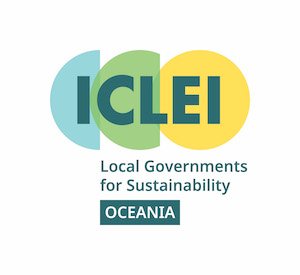ICLEI Oceania is now launching the Australian chapter of the Cities With Nature (CWN) program and we are extending invitations to councils to become one of our “Pioneer Cities” and take part in a needs-assessment research. Cities With Nature is a shared global platform that encourages cities to incorporate nature-based solutions in their urban development and planning.
Read MoreUber launched its dockless e-bike share scheme - JUMP! Bikes - in Melbourne with an initial 400 electric bikes released onto the streets on Wednesday 4th March.
Three ICLEI member councils – Melbourne, Port Phillip and Yarra – are part of the pilot, and they have signed a memorandum of understanding with Uber to ensure the trial goes smoothly and avoids the pitfalls of previous bike share schemes. The trial is an example of how councils are taking steps to explore all the options on the table when it comes to sustainable mobility.
Read MoreMore frequent and severe heavy rainfall events, flooding and landslides are what keep Honiara villagers awake at night. ICLEI and Honiara Council representatives have visited several of the most vulnerable settlements in Honiara from November 2019 to February 2020 and talked with village leaders and residents.
Read MoreNationally heritage listed for their unique design, the Adelaide Park Lands consist of 760 hectares of parks, squares and gardens – making them the largest inner urban park system in Australia. The Park Lands contribute to Adelaide consistently being named one of the most liveable cities in the world and provide a space where residents and visitors alike can enjoy healthy and balanced living through sport and exercise, recreation and relaxation.
Read MoreThe slogan “What you can measure, you can manage” has become a guiding principle for local climate action. There’s an accounting standard made for this purpose: the Global Protocol for Community-scale Greenhouse Gas Emission Inventories. Free online CO₂ emissions snapshots for municipalities in Australia, recently launched by Ironbark Sustainability and Beyond Zero Emissions, make the protocol more accessible than ever for local governments and communities that want to know what their emissions are, and what to do about them.
Read MoreMelbourne, 14-15th of February. A string of chattering people streamed up Collins Street from the doors of the Melbourne Town Hall, waiting to enter Australia’s first National Climate Emergency Summit. At the time, over 70 local governments in Australia and 1,350 globally had declared a climate emergency. ICLEI personnel, councils, and representatives from our Regional Executive and Global Executive Committees were present.
Read MoreThe recent catastrophic firestorms engulfing Australian forests, farmlands and communities have been heartbreaking and we at ICLEI extend our condolences to everyone who has lost loved ones or property or businesses. It is also heartbreaking to witness the widespread damage to habitat and wildlife.
Read MoreA new report has shown that if cities can meet their own climate targets they could help to reduce global emissions by 44% by 2030 and 66% by 2050 against a business-as-usual scenario.
Read MoreWith the Chile-Madrid-COP25 concluded, ICLEI Head of Global Policy and Advocacy, Yunus Arikan reflects on the hope and frustration in a CityTalk blog.
Read MoreThe City of Ballarat is leading the way for recycling by removing glass from roadside recycling collection. This is an encouraging to the collapse of recycler SKM Recycling this year, which left dozens of councils stranded with tonnes of waste.
Read MoreOn the 20th November the ICLEI Young Writers Network hosted a dialogue with students and sustainability professionals on the theme of TRANSITIONS. We explored three themes transport, food and energy, using a Finnish format for structure discussion, called Timeout.
Read MoreICLEI’s milestone report, Resilient Cities, Thriving Cities: The Evolution of Urban Resilience tracks ten years of resilience evolution through the lens of the Resilient Cities Congress.
Read MoreNew Zealand passed landmark legislation last Thursday referred to as the Zero Carbon Amendment Bill. The Bill amends New Zealand’s Climate Change Responses Act 2002, legislating New Zealand’s ambition to reduce emissions in line with the Paris Agreements target of 1.5°C.
Read More















